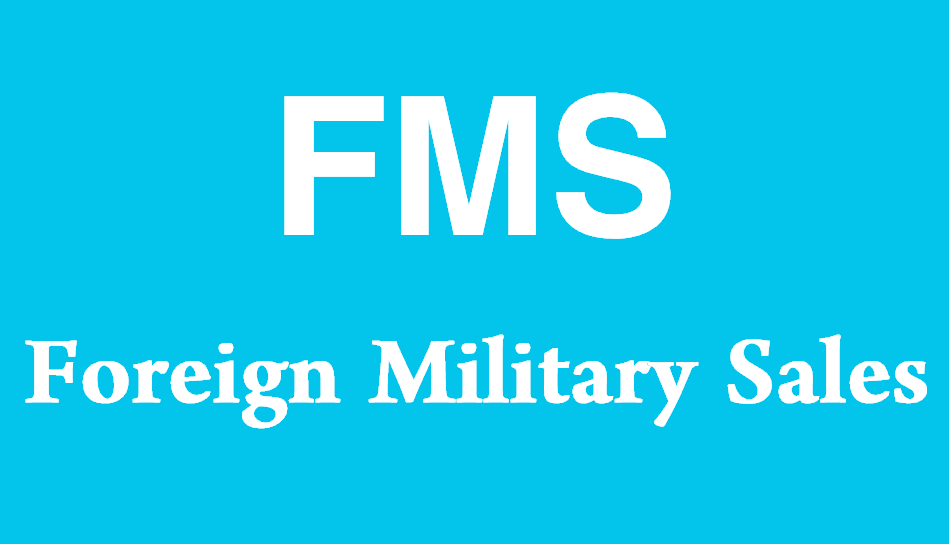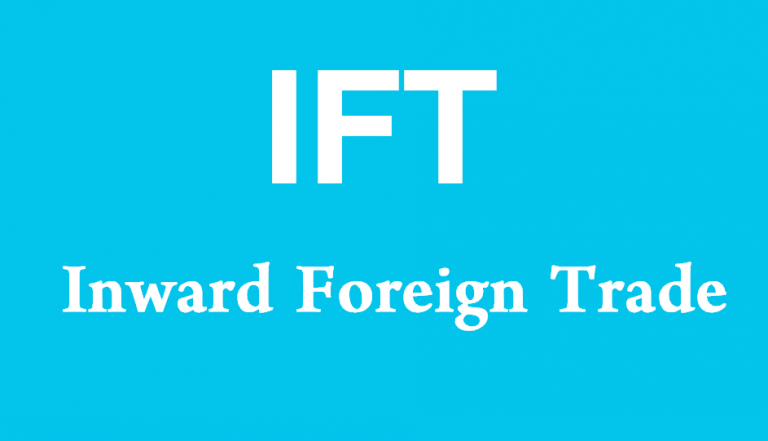What Does FDI Stand For?
FDI stands for Foreign Direct Investment. Foreign Direct Investment (FDI) refers to the investment made by an individual, company, or government of one country into business interests located in another country. Unlike portfolio investment, which involves purchasing stocks or bonds of foreign companies, FDI involves acquiring a lasting interest and significant influence in the management and operations of a business enterprise located abroad. FDI plays a crucial role in stimulating economic growth, enhancing productivity, promoting technology transfer, and fostering international trade and cooperation. Understanding the dynamics of FDI is essential for governments, businesses, and investors seeking to capitalize on global economic opportunities and maximize their returns on investment.

Comprehensive Explanation of Foreign Direct Investment (FDI)
Introduction to FDI
Definition and Concept
Foreign Direct Investment (FDI) refers to the investment made by a foreign entity or individual in business operations located in another country. FDI involves acquiring a significant ownership stake, typically at least 10% or more, in a foreign enterprise, thereby gaining control or influence over its management, operations, and decision-making processes. Unlike portfolio investment, where investors passively hold financial assets such as stocks or bonds, FDI entails establishing a lasting interest and active involvement in the day-to-day activities of the invested company.
Types of FDI
FDI can take various forms, including:
- Greenfield Investment: Involves establishing a new business operation or facility in a foreign country, such as building a new factory, office, or production facility from the ground up.
- Mergers and Acquisitions (M&A): Involves acquiring ownership or control of an existing foreign company through the purchase of its shares, assets, or equity stakes.
- Joint Ventures: Involves forming a partnership or alliance with a local company or entity in the foreign market to jointly undertake business activities and share resources, risks, and rewards.
Motivations for FDI
Market Seeking
One of the primary motivations for FDI is access to foreign markets and customers. By investing in foreign markets, companies can expand their customer base, reach new segments, and capitalize on untapped opportunities for growth and revenue generation. Market-seeking FDI allows companies to overcome trade barriers, tariffs, and regulatory restrictions, enabling them to sell their products or services directly to foreign consumers and businesses.
Resource Seeking
FDI may also be driven by the desire to access strategic resources, inputs, or factors of production that are scarce, expensive, or unavailable in the home country. Companies invest in foreign markets to secure access to raw materials, energy sources, technology, skilled labor, or other critical resources needed for their production processes. Resource-seeking FDI helps companies reduce costs, improve efficiency, and enhance competitiveness by leveraging the comparative advantages offered by foreign locations.
Efficiency Seeking
Efficiency-seeking FDI aims to optimize production, distribution, or operational processes by relocating certain activities or functions to foreign locations with lower costs or better conditions. Companies may invest in countries with lower labor costs, favorable tax regimes, relaxed regulations, or superior infrastructure to streamline their operations, increase profitability, and gain a competitive edge in the global marketplace. Efficiency-seeking FDI allows companies to rationalize their supply chains, improve supply chain management, and achieve economies of scale and scope.
Strategic Asset Seeking
Strategic asset-seeking FDI involves acquiring or controlling strategic assets, capabilities, or intellectual property in foreign markets to strengthen competitiveness, enhance market positioning, or gain a competitive advantage. Companies may invest in foreign companies or technology firms to acquire proprietary technology, patents, brands, or expertise that complement their existing capabilities or fill gaps in their product portfolios. Strategic asset-seeking FDI enables companies to enhance innovation, differentiation, and value creation by leveraging external resources and capabilities.
Benefits of FDI
Economic Growth and Development
FDI plays a vital role in stimulating economic growth, fostering development, and reducing poverty in host countries. By injecting capital, technology, and managerial expertise into local economies, FDI creates employment opportunities, boosts productivity, and stimulates investment in infrastructure, education, and healthcare. FDI contributes to the transfer of knowledge, skills, and best practices, catalyzing innovation, entrepreneurship, and industrialization in host countries. Additionally, FDI generates tax revenues, foreign exchange earnings, and spillover effects that contribute to overall economic prosperity and welfare.
Technology Transfer and Innovation
FDI facilitates the transfer of technology, know-how, and technical expertise from multinational corporations (MNCs) to domestic firms and industries in host countries. MNCs often bring advanced technologies, research capabilities, and innovative practices to foreign markets, helping domestic firms upgrade their production processes, improve product quality, and enhance competitiveness. Technology transfer through FDI promotes learning, adaptation, and innovation diffusion, leading to the development of new products, services, and industries that drive economic growth and technological progress.
Job Creation and Skills Development
FDI generates employment opportunities and promotes human capital development by creating jobs, training programs, and skill-enhancement initiatives in host countries. MNCs invest in workforce development, education, and training to build a skilled labor force capable of supporting their operations and driving economic growth. FDI creates direct employment in multinational enterprises as well as indirect and induced employment in supply chains, support services, and related industries. By providing formal employment, income, and career opportunities, FDI contributes to poverty reduction, social mobility, and inclusive development.
Enhancing Competitiveness and Productivity
FDI enhances the competitiveness and productivity of host country industries by fostering competition, innovation, and efficiency improvements. MNCs introduce best practices, management techniques, and quality standards that raise the performance benchmarks for domestic firms and industries. FDI promotes specialization, diversification, and value-added activities, enabling host countries to participate in global value chains and capitalize on comparative advantages. By integrating into global markets, supply chains, and networks, host country firms can access new markets, technologies, and opportunities for growth and expansion.
Risks and Challenges of FDI
Dependency and Vulnerability
Excessive reliance on FDI as a source of capital, technology, or employment can create dependency and vulnerability for host countries, making them susceptible to external shocks, market fluctuations, and corporate decisions made by multinational investors. Host countries may become overly reliant on foreign-owned enterprises for critical goods, services, or infrastructure, exposing them to risks such as sudden disinvestment, market exit, or loss of control over strategic assets. Dependency on FDI can undermine domestic industries, erode national sovereignty, and exacerbate income inequality and social disparities.
Economic Imbalances and Inequalities
FDI can exacerbate economic imbalances and inequalities within host countries, leading to uneven regional development, wealth concentration, and social disparities. MNCs may concentrate their investments in urban centers or affluent regions, neglecting rural areas or marginalized communities with limited access to resources or opportunities. This spatial concentration of FDI can widen the urban-rural divide, exacerbate poverty, and contribute to social tensions and conflicts. Additionally, FDI may create wage differentials, labor market segmentation, and job insecurity, further exacerbating income inequality and social exclusion.
Environmental Degradation and Sustainability
Unregulated or irresponsible FDI practices can result in environmental degradation, resource depletion, and ecological damage in host countries. MNCs operating in sectors such as mining, energy, or manufacturing may disregard environmental regulations, exploit natural resources, or pollute ecosystems, jeopardizing the health and well-being of local communities and ecosystems. FDI projects with inadequate environmental safeguards can lead to deforestation, soil erosion, water pollution, and habitat destruction, threatening biodiversity and ecosystem resilience. Host countries may face challenges in enforcing environmental standards, monitoring compliance, and holding foreign investors accountable for their environmental footprint. Sustainable FDI practices, such as eco-friendly technologies, green investments, and corporate social responsibility (CSR) initiatives, are essential for mitigating environmental risks, promoting sustainable development, and ensuring the long-term viability of natural resources and ecosystems.
Social and Cultural Impacts
FDI can have profound social and cultural impacts on host communities, including changes in lifestyle, values, and social norms. The influx of foreign investment, technology, and personnel may lead to cultural assimilation, acculturation, or cultural homogenization, as local traditions and identities are influenced by globalized trends and practices. MNCs may introduce Western management styles, consumer preferences, or cultural symbols that reshape local markets, behaviors, and preferences. Additionally, FDI projects may disrupt traditional livelihoods, social structures, and community cohesion, leading to social tensions, resistance, or conflicts between foreign investors and local stakeholders.
Government Policies and Regulation
Investment Promotion
Many countries adopt investment promotion policies and incentives to attract FDI and stimulate economic development. Governments may offer tax breaks, investment subsidies, import/export incentives, or preferential treatment to foreign investors to encourage capital inflows, technology transfer, and job creation. Investment promotion agencies (IPAs) play a key role in marketing the country’s investment opportunities, facilitating investment projects, and assisting foreign investors with regulatory compliance, permits, and approvals.
Investment Facilitation
Governments implement investment facilitation measures to streamline administrative procedures, reduce bureaucratic barriers, and improve the ease of doing business for foreign investors. Simplified licensing, permitting, and registration processes, as well as online platforms and one-stop shops, expedite the establishment and operation of foreign-owned enterprises. Investment facilitation initiatives aim to enhance transparency, predictability, and efficiency in regulatory frameworks, fostering a conducive business environment for FDI inflows and investment expansion.
Investment Protection
To safeguard the rights and interests of foreign investors, host countries enact investment protection measures and legal frameworks that ensure fair treatment, non-discrimination, and property rights protection. Bilateral investment treaties (BITs), investment promotion and protection agreements (IPPAs), and international arbitration mechanisms provide mechanisms for resolving investment disputes, enforcing contractual obligations, and seeking redress for expropriation, nationalization, or other forms of unfair treatment. Investment protection provisions promote confidence, stability, and certainty for foreign investors, encouraging long-term commitments and sustainable partnerships.
Investment Regulation
Governments regulate FDI through policies, laws, and regulations governing foreign investment, ownership restrictions, sectoral regulations, and national security considerations. Screening mechanisms, approval processes, and regulatory oversight frameworks ensure that FDI projects align with national development priorities, economic objectives, and public interest considerations. Some countries impose restrictions or conditions on foreign ownership, control, or participation in certain strategic sectors, such as defense, telecommunications, or critical infrastructure, to safeguard national sovereignty, security, or cultural heritage.
Notes to Importers
FDI Opportunities
Importers should explore opportunities to leverage FDI for their business growth and expansion strategies. By partnering with foreign investors or multinational corporations (MNCs), importers can access capital, technology, market expertise, and global networks that enhance their competitiveness and market presence. Collaborating with foreign investors can facilitate access to international markets, supply chains, and distribution channels, enabling importers to diversify their product offerings, reach new customers, and capitalize on emerging market trends and opportunities.
Market Entry Strategies
Importers should carefully evaluate market entry strategies and investment options when considering FDI opportunities. Depending on their business objectives, market conditions, and risk appetite, importers may choose to establish wholly-owned subsidiaries, enter into joint ventures or strategic alliances, or pursue mergers and acquisitions (M&A) with local partners or competitors. Each market entry mode has its advantages, risks, and implications for ownership, control, and operational flexibility, requiring careful analysis and strategic planning to optimize investment outcomes and mitigate potential challenges or pitfalls.
Regulatory Compliance
Importers engaging in FDI activities must comply with applicable laws, regulations, and regulatory requirements in both the home and host countries. Regulatory compliance encompasses various aspects, including corporate governance, taxation, labor laws, environmental regulations, intellectual property rights, and foreign exchange controls. Importers should conduct thorough due diligence, seek legal and financial advice, and obtain necessary permits, licenses, or approvals from relevant authorities to ensure compliance with regulatory obligations and minimize legal and operational risks associated with FDI ventures.
Risk Management
Importers should assess and manage the risks associated with FDI projects to safeguard their investments and maximize returns. Risk management involves identifying, evaluating, and mitigating potential risks and uncertainties that could affect the success or viability of FDI ventures. Common risks associated with FDI include political instability, regulatory changes, economic fluctuations, currency volatility, operational disruptions, and reputational risks. Importers should develop contingency plans, risk mitigation strategies, and insurance coverage to address potential contingencies and protect their investment interests in foreign markets.
Strategic Partnerships
Importers can enhance their FDI strategies by forging strategic partnerships and collaborations with foreign investors, industry stakeholders, and local communities. Strategic partnerships enable importers to pool resources, share risks, and leverage complementary strengths and capabilities to achieve mutual goals and objectives. Importers can collaborate with foreign investors on joint research and development (R&D) initiatives, technology transfer programs, marketing campaigns, and supply chain optimization projects to create value, drive innovation, and capture synergies that benefit all parties involved.
Sample Sentences with “FDI” and Their Meanings
- The government’s policies aimed at attracting FDI have led to increased investment inflows and economic growth.
- Meaning: The government’s initiatives to encourage Foreign Direct Investment (FDI) have resulted in higher levels of investment coming into the country and improved economic performance.
- The company’s decision to establish a subsidiary abroad reflects its strategy to expand its global footprint through FDI.
- Meaning: The company’s choice to create a new company in a foreign country signifies its approach to growing its international presence by making Foreign Direct Investments (FDI).
- FDI plays a crucial role in driving innovation and technological advancement in emerging markets, fostering economic development and job creation.
- The success of the joint venture relied on synergies created through FDI, enabling the partners to leverage their respective strengths and resources.
- Meaning: The effectiveness of the partnership was dependent on the benefits derived from Foreign Direct Investment (FDI), which allowed the partners to combine their advantages and assets.
- Government policies aimed at liberalizing FDI regulations have attracted foreign investors seeking new opportunities in the domestic market.
- Meaning: Regulatory changes implemented by the government to open up Foreign Direct Investment (FDI) opportunities have drawn interest from international investors looking to enter the local market.
Other Meanings of “FDI”
| Acronym | Full Form | Meaning |
|---|---|---|
| FDI | First Data International | A global payment technology and services company offering electronic commerce and payment processing solutions. |
| FDI | Foundation for Defense of Democracies | A non-profit think tank based in Washington, D.C., focusing on national security, foreign policy, and terrorism research. |
| FDI | Family Daycare Information | A database or resource center providing information and support for families seeking daycare services for their children. |
| FDI | Fixed Deposit Interest | The interest earned on funds deposited in a fixed deposit account with a bank or financial institution for a specified term. |
| FDI | Full Denture Immediate | A dental procedure involving the placement of a full set of dentures immediately after the removal of natural teeth. |
| FDI | First Dynamic International | A company or organization specializing in international trade, business consulting, or market expansion services. |
| FDI | Fluid Dynamics Instrumentation | Instruments or devices used for measuring, monitoring, or analyzing fluid flow, pressure, temperature, and other parameters. |
| FDI | Finite Difference Integration | A numerical method or technique for solving differential equations by approximating derivatives with finite difference quotients. |
| FDI | Foundation Degree in Information | An academic degree program focusing on information technology, computer science, or related disciplines at the undergraduate level. |
| FDI | Fast Dynamics Imaging | An imaging technique or technology used in medical diagnostics, scientific research, or industrial applications for capturing dynamic processes with high temporal resolution. |
| FDI | Flight Director Indicator | A cockpit instrument or display used by pilots to provide guidance and information during aircraft navigation and control. |
| FDI | Future Development Initiative | An initiative or program aimed at promoting sustainable development, poverty alleviation, and socio-economic progress in underprivileged communities or regions. |
| FDI | Fire Department Instructor | A certified trainer or educator responsible for providing instruction, training, and certification to firefighters and emergency responders. |
| FDI | Financial Dynamics Index | An index or indicator used to measure and assess financial market trends, performance, or stability based on various economic factors and parameters. |
| FDI | Foreign Direct Investment (Alternative meaning) | An alternate interpretation of the acronym, emphasizing its primary definition as an investment made by a foreign entity in a domestic business or asset. |
| FDI | Free Dog Information | Information or resources related to dog ownership, care, training, health, and behavior provided free of charge to pet owners or enthusiasts. |
| FDI | Food Delivery Information | Information or services related to food delivery, online ordering, restaurant listings, menus, and reviews available through digital platforms or applications. |
| FDI | Fire Damage Insurance | Insurance coverage or protection against property damage, loss, or liabilities resulting from fire-related incidents or accidents. |
| FDI | Full Data Image | A complete or comprehensive image file containing all data and information required for processing, analysis, or visualization purposes. |





